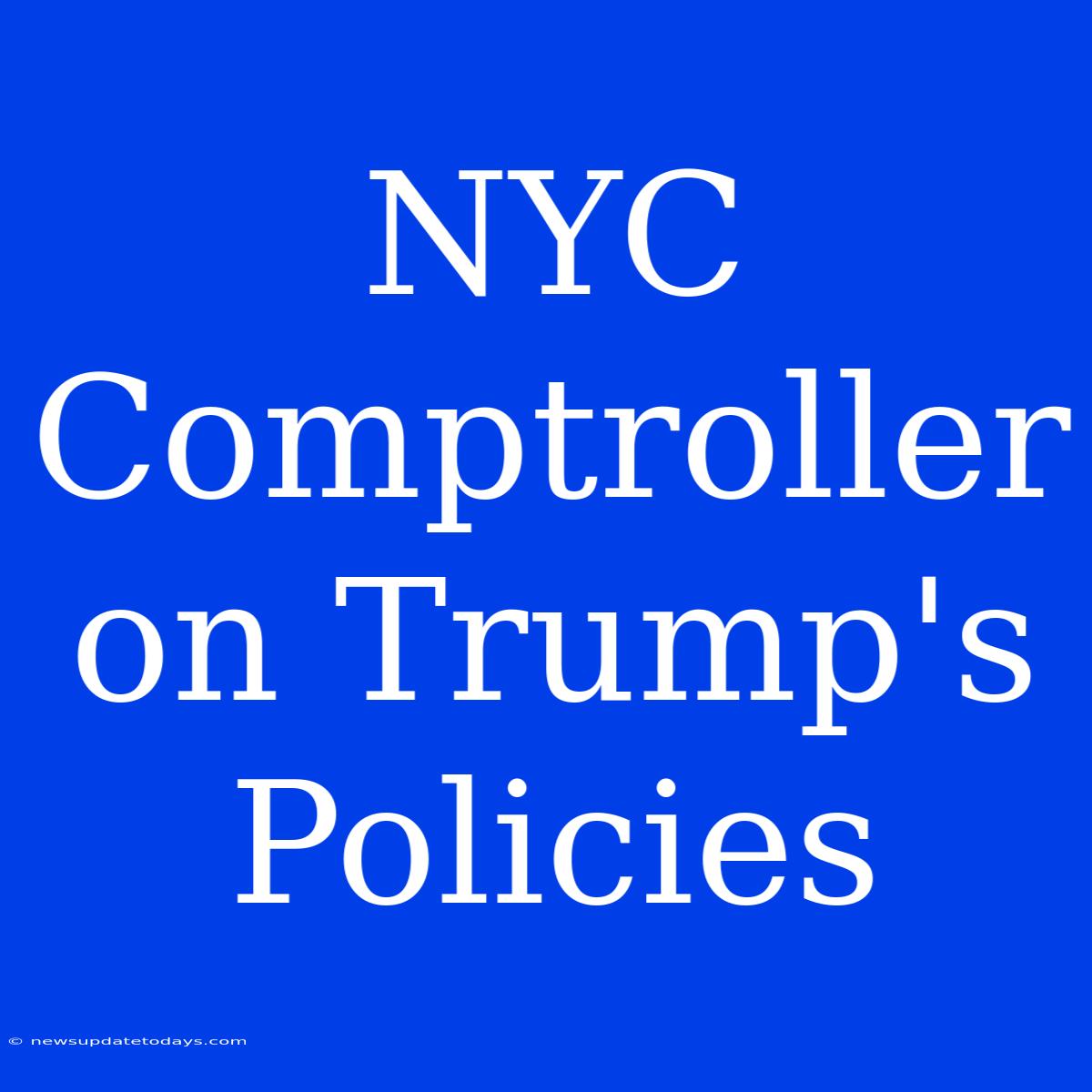NYC Comptroller Slams Trump's Economic Policies: A Devastating Assessment
The economic policies enacted during the Trump administration continue to be a subject of intense debate. New York City Comptroller Brad Lander has consistently been a vocal critic, offering a stark assessment of their impact, particularly on New York City. This article delves into Comptroller Lander's key criticisms and provides context for understanding the ongoing implications.
Lander's Central Arguments:
Comptroller Lander's critiques often center around several core arguments:
1. Tax Cuts Favoring the Wealthy:
Lander has repeatedly condemned the 2017 Tax Cuts and Jobs Act, arguing that it disproportionately benefited the wealthy while offering minimal benefits to the middle class and low-income individuals. He highlights how this exacerbated income inequality, a significant concern for a city like New York with a wide wealth gap. He often cites data showing the increased tax burden on lower and middle-income families while large corporations and high-net-worth individuals received substantial tax breaks.
2. Deregulation and Environmental Impact:
Lander has voiced strong opposition to the Trump administration's deregulation efforts, particularly those affecting environmental protection. He points to the potential negative consequences for New York City, a coastal metropolis highly vulnerable to climate change. He emphasizes the increased risks of rising sea levels, extreme weather events, and the overall damage to the environment. His concerns frequently focus on the rollback of crucial environmental regulations and the long-term economic costs associated with environmental damage.
3. Impact on NYC's Budget and Infrastructure:
The Trump administration's economic policies, according to Lander, have negatively impacted New York City's budget and its ability to fund crucial infrastructure projects. He highlights the loss of federal funding and the challenges in securing necessary resources for essential services. He frequently references specific examples of cuts to vital programs and the strain on the city's finances.
4. Trade Wars and Their Repercussions:
Lander also criticizes the Trump administration's trade policies, particularly the trade wars initiated with various countries. He argues that these actions harmed businesses and workers in New York City, disrupting supply chains and negatively affecting the city's economy. He often provides specific examples of industries and businesses impacted by these trade disputes.
The Larger Context:
Understanding Comptroller Lander's criticisms requires understanding the broader context of the Trump administration's economic philosophy. The emphasis on deregulation, tax cuts for the wealthy, and protectionist trade policies were central tenets of the administration's approach. Lander’s arguments position themselves firmly against this approach, emphasizing the negative consequences for New York City and its residents.
Looking Ahead:
The legacy of the Trump administration's economic policies continues to unfold. Comptroller Lander's assessments serve as a crucial perspective, highlighting the long-term effects and the challenges facing New York City in addressing the economic fallout. His continued scrutiny and advocacy ensure that these issues remain in the public discourse and inform future policy decisions. Analyzing his statements and comparing them to other economic analyses is key to fully grasping the complexities of this critical period in US economic history.

